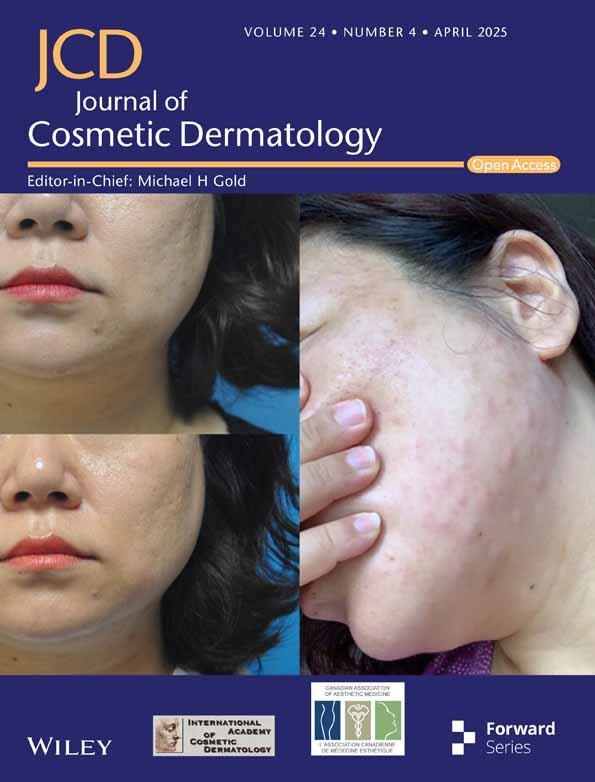OS-01 Peptide Topical Formulation Improves Skin Barrier Function and Reduces Systemic Inflammation Markers: A Pilot 12-Week Clinical Trial
Funding: The authors received no specific funding for this work.
ABSTRACT
Objective
As the body's largest organ, the skin plays a crucial role in defending against external stressors. Skin characteristics change with age, decreasing skin barrier integrity and compromising skin and body health. This study aimed to investigate the potential of a topical formulation containing OS-01 (a.k.a. Peptide 14), a senotherapeutic peptide, to counteract age-related skin changes and their systemic consequences.
Methods
A randomized, double-blinded clinical trial involving 60 female volunteers aged 60–90 was conducted over 12 weeks. Participants received either an OS-01 topical formulation or a commercially available moisturizer control formulation. Skin parameters, subjective perceptions, and circulating cytokine levels were assessed. Skin instrumental analysis included transepidermal water loss (TEWL), skin hydration, and pH measurements.
Results
Participants treated with the OS-01 topical formulation displayed significantly improved skin barrier function and hydration compared to the control group. Participant perceptions aligned with objective findings: after 12 weeks, 70% of participants in the OS-01 group noticed an improvement in general skin appearance versus 42% for the control group. The systemic levels of proinflammatory cytokines tended to normalize, with a significant decrease in IL-8 in the blood analysis of participants from the OS-01 group. On the other hand, the control group demonstrated an increase in a few circulating cytokines, particularly TNF-ɑ and IFN-γ. Moreover, GlycanAge analysis measuring participants' biological age suggested the slowing of systemic aging in the group treated with the OS-01 topical formulation.
Conclusion
The study suggests that the OS-01 formulation can impact skin health by improving the skin barrier function, potentially influencing systemic inflammation and biological age. In conclusion, the study supports that targeting skin health may contribute to better longevity outcomes, underscoring the skin's pivotal role in systemic aging and supporting an integrated approach to health management.
Conflicts of Interest
Alessandra Zonari, Mariana Boroni, Carolina Reis de Oliveira, Lear Brace, and Juliana L. Carvalho are named as inventors of a patent directed at this invention, which is solely owned by OneSkin Inc. Alessandra Zonari, Mariana Boroni, Carolina Reis de Oliveira, and Juliana L. Carvalho are co-founders of OneSkin Inc.
Open Research
Data Availability Statement
The authors have nothing to report.




